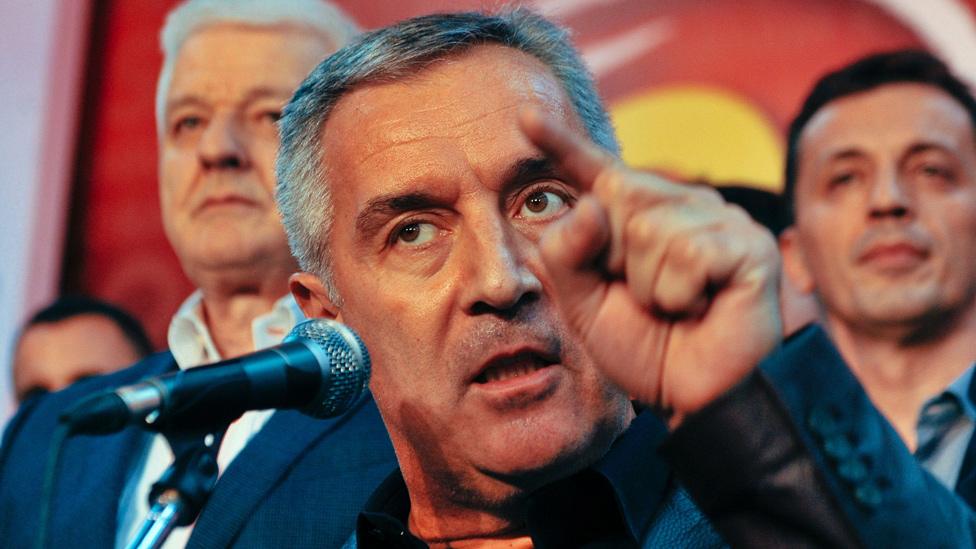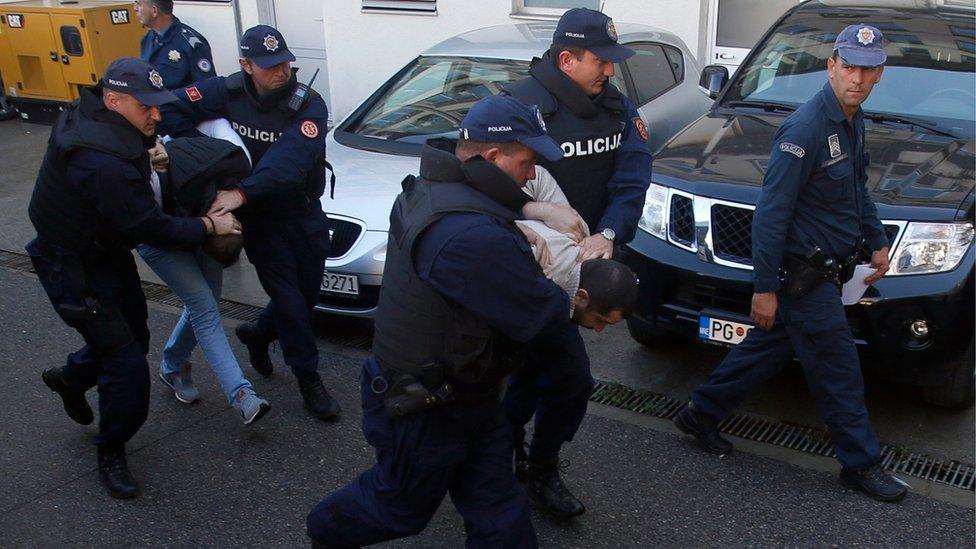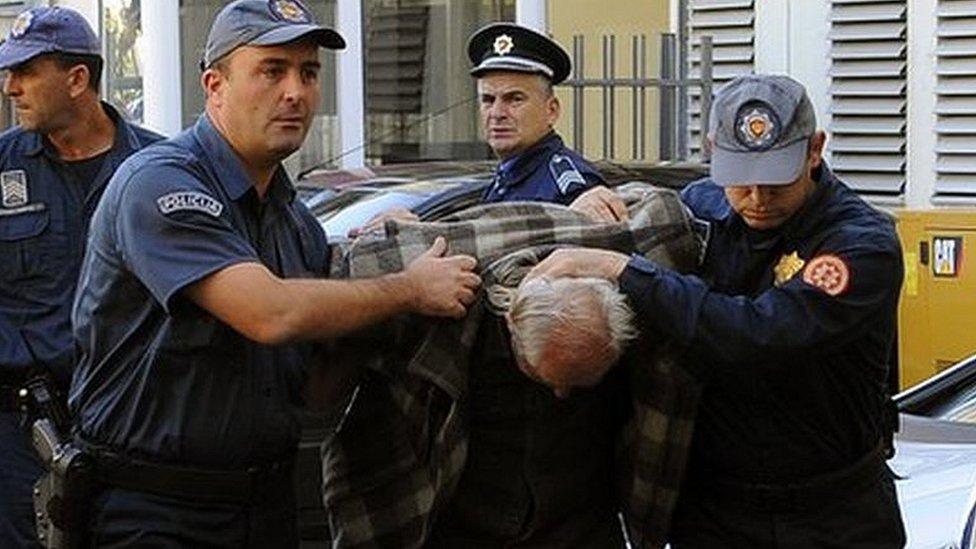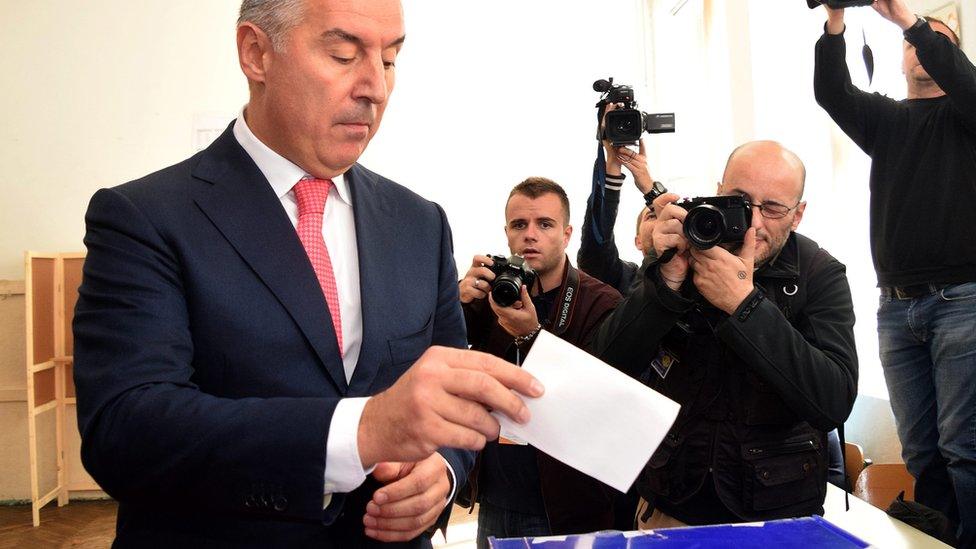Montenegro charges 14 over alleged plot to oust PM
- Published

PM Milo Djukanovic has steered Montenegro towards Nato membership - irritating Russia
A special prosecutor in Montenegro has charged 14 people, including two Russians, with plotting to overthrow the government last October.
The Russians, identified as Eduard Shishmakov and Vladimir Popov, are at large. They are suspected of being state intelligence agents.
Russia has called the allegations absurd. Montenegro is close to joining Nato - a move criticised by Russia.
Two pro-Russian opposition leaders and nine Serbs are among the 14 indicted.
Those leaders are Andrija Mandic and Milan Knezevic - MPs in the Democratic Front Alliance. Mr Mandic called the charges politically motivated and said they were aimed at weakening the opposition.
The 14th person on the list of those charged is a Montenegrin.
The alleged plot dates back to a series of arrests hours before Montenegro's parliamentary elections in October 2016.
At the time, Serb paramilitaries and Russian nationalists were blamed.

At least 20 people were arrested as Montenegrins prepared to vote on 16 October 2016
Nato membership remains highly controversial in the small Balkan country, which became independent in 2006.
Serbia and Montenegro - both bombed by Nato planes in the 1999 Kosovo war - were originally one country after the break-up of Yugoslavia.

Read more

The opposition says the alleged plot was really a "false flag" operation by the Montenegrin authorities, intended to boost support for Prime Minister Milo Djukanovic. His ruling Democratic Party of Socialists won the election.
According to special prosecutor Milivoje Katnic, a terrorist attack was planned in order to destabilise Montenegro, seize power and block the path to Nato membership.
On Tuesday President Donald Trump approved ratification of Montenegro's Nato membership. The process is almost complete for Montenegro, poised to become the 29th Nato member.
This week, a White House official, speaking anonymously, cited "credible reports" that Moscow had backed a plot against Mr Djukanovic.
Russia's Foreign Ministry has condemned Montenegro's Nato accession, saying "it runs counter to the core interests of the people of that country and is damaging for the stability of the Balkans and Europe as a whole".
It accused Washington of pursuing "the logic of confrontation in Europe, where new dividing lines are being drawn".
- Published20 February 2017

- Published12 December 2016

- Published17 October 2016

- Published19 May 2016